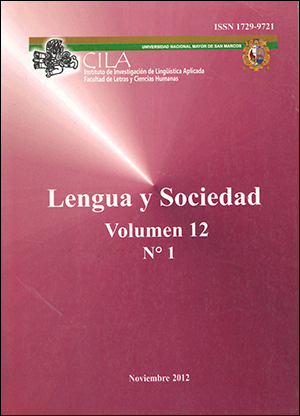School education and citizenship in rural Andean Peru: the communicative role of spatial organization
DOI:
https://doi.org/10.15381/lengsoc.v12i1.22651Keywords:
school line-ups, spatial organization, inclusive citizenship, rural primary schoolsAbstract
This article, based on fieldwork conducted in a primary school in Lucanas Province (Ayacucho, Peru), highlights the communicative role of children´s spatial organization in school line-ups. I suggest that school line-ups may be particularly emphasized in agricultural communities that have historically been left out of the national imaginary. The straight lines may be oriented toward forming children into citizen-subjects who are orderly, oriented toward progress, and united with an imagined national community. Furthermore, the spectacle form of school line-ups creates a connection between the norms of citizenship taught in school and the multiple spectacles in which children participate in communal agricultural life. These preliminary results draw attention to the importance of considering spatial organization both in and outside of school as a significant element in citizenship education and a key topic for reflection in the promotion of inclusive citizenship.
Downloads
Published
Issue
Section
License
Copyright (c) 2012 Kate Grim-Feinberg

This work is licensed under a Creative Commons Attribution 4.0 International License.
AUTHORS RETAIN THEIR RIGHTS
a. Authors retain their trade mark rights and patent, and also on any process or procedure described in the article.
b. Authors can submit to the journal Lengua y Sociedad, papers disseminated as pre-print in repositories. This should be made known in the cover letter.
c. Authors retain their right to share, copy, distribute, perform and publicly communicate their article (eg, to place their article in an institutional repository or publish it in a book), with an acknowledgment of its initial publication in the journal Lengua y Sociedad.
d. Authors retain theirs right to make a subsequent publication of their work, to use the article or any part thereof (eg a compilation of his papers, lecture notes, thesis, or a book), always indicating its initial publication in the journal Lengua y Sociedad (the originator of the work, journal, volume, number and date).



























